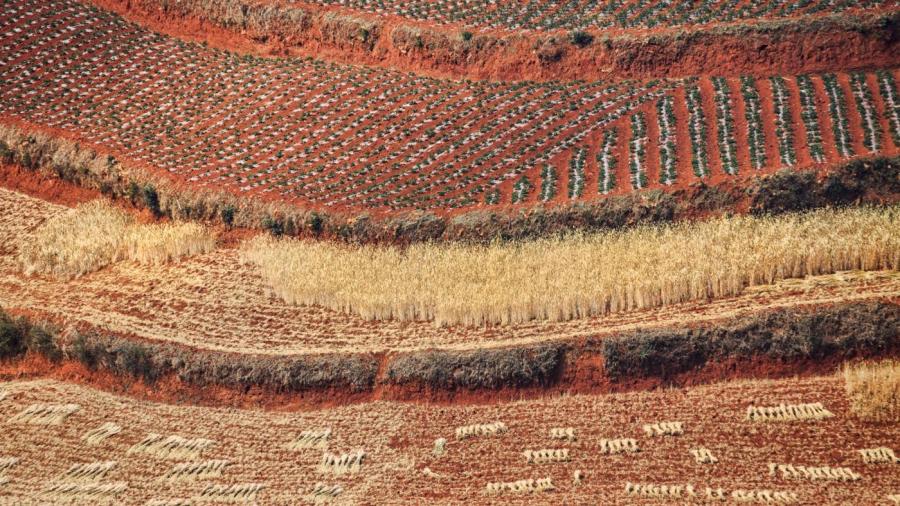What Is Soil Composition?

Soil composition refers the type and quantity of substances found in soils. Soil substances occur in four basic components: minerals, organic matter, water and air. The combination of these substances varies among soils but generally consists primarily of minerals followed by equal parts water and air and a small amount of organic matter.
In addition to varying in composition, soils differ in their densities and abilities to absorb and retain water. In between the spores of soil are pore spaces, which contain different levels of soil, air and water. In soils, the ratio of air-filled pore spaces to water-filled pore spaces varies widely and changes frequently. These rations may change daily, weekly and seasonally and depend on many intrinsic and external factors and conditions, such as water additions through groundwater discharge, flooding and precipitation. Additionally, the volume of pore space may be altered by human and mechanical techniques, such as farming and tilling. Content and composition of soils varies depending on geographical location and surrounding environment as well. Soils in wetland areas and forests are generally denser and heavier and have larger volumes of organic matter. Soils in dry and arid regions have smaller pores and less organic matter content.





